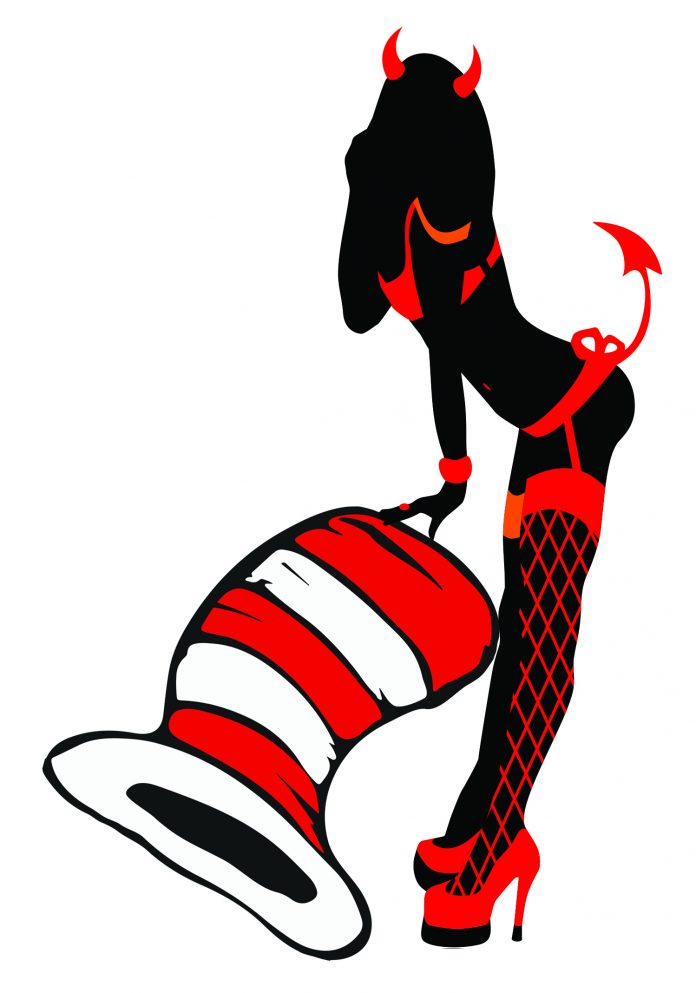(Note: This story appears in the November 2021 issue of ED Magazine)
*Story by Ryan Carlson
If Dr. Seuss isn’t immune from “cancellation,” where does that leave the protection granted by the First Amendment for the gentlemen’s club industry?
As a young boy, my favorite author was Dr. Seuss, whose stories my parents would read aloud as I fell asleep. I’m sure they would have had as hard a time as I imagining that someday, a few of those Seuss books would end up “canceled” and wiped from our collective memory. In the spirit of self-preservation, witnessing this perplexing modern event got me thinking about what “cancel culture” might mean for our industry.
I needn’t bore you with my amateur legal scholarship in explaining that the legal underpinning that permits nude dancing is the First Amendment. Without it, most clubs would be closed and we would all be without our livelihood. Industry legends fought legal wars costing substantial energy, money, and in many cases, years in prison that ultimately deemed the First Amendment the legal protector of nude (or at least pasties and a g-string—Ed.) expression. The ability to speak one’s mind extends to the ability to present one’s nude body, a precedent that has protected us for decades.
For many years, I’ve been hearing about how rough the “old days” were for our industry. Censorship, government harassment and arrests were commonplace. My mentor, Harry Mohney, was arrested for alleged “obscenity” 83 times. Every time, the government failed and the First Amendment ultimately prevailed. While we still have periodic scuffles with the government, it’s nowhere near as bad as it used to be.
Dr. Seuss’ postmortem cancellation leaves me disillusioned about how much longer the First Amendment will be our industry’s knight in shining armor.
To be crystal clear, there is a distinction between “cancellation” and “censorship.” Cancellation is not a violation of the First Amendment, as it involves only private actors. Censorship, on the other hand, is an illegal act at the hands of the government in which citizens don’t have any choice. Dr. Seuss suffered no censorship; rather, he was simply de- platformed by the private publisher that previously peddled his books (i.e., “canceled”). While cancellation is surely a worrying trend, it’s not illegal.
What is more worrisome is the dichotomy the cancellation debate is prompting. We must look no further than social media to see a perfect example. On the left, there are many who are very happy to advocate for the online cancellation of topics of which they don’t approve, such as hate speech, anti-vaccine disinformation, or Q-Anon content of any variety. On the right, there would be no hesitation in canceling entire social media platforms that elect not to publish right-wing content (remember that the absence of speech, too, is an element of free speech).
But the problem isn’t just that the left and right would both very happily “cancel” one another at the expense of the First Amendment, but that they’re actually advocating for state censorship.
Section 230 of the Communications Decency Act renders social media platforms not responsible for the content of its users just as the First Amendment protects one’s right to voice anti-vaccine opinions. The left and the right would happily curtail both legislatively (look no further than Trump’s proposal to nix Section 230 or Democrats’ proposal to regulate COVID-related speech). That, by definition, is censorship, and it’s absolutely terrifying. The First Amendment was not designed to protect speech that everybody likes; rather, it was designed to protect unpopular speech. Have no doubt, give the censors an inch, and the next mile they will take is a ban on pornography, nude dancing, and before you know it, everything else.
In our business, one legislative change is a slippery slope to many more. Allow the First Amendment to be curtailed in any way, and before we realize it, we’re living in a police state. And before you think that sounds crazy, consider that you can go on Amazon right now to purchase a copy of Hitler’s “Mein Kampf,” but you can’t purchase “If I Ran The Zoo” by Dr. Seuss! Dr. Seuss once said, “life’s a little weird,” but the times we’re living in are more than a “little weird.” They are outright surreal.
Ryan Carlson is the CEO for Deja Vu.





























